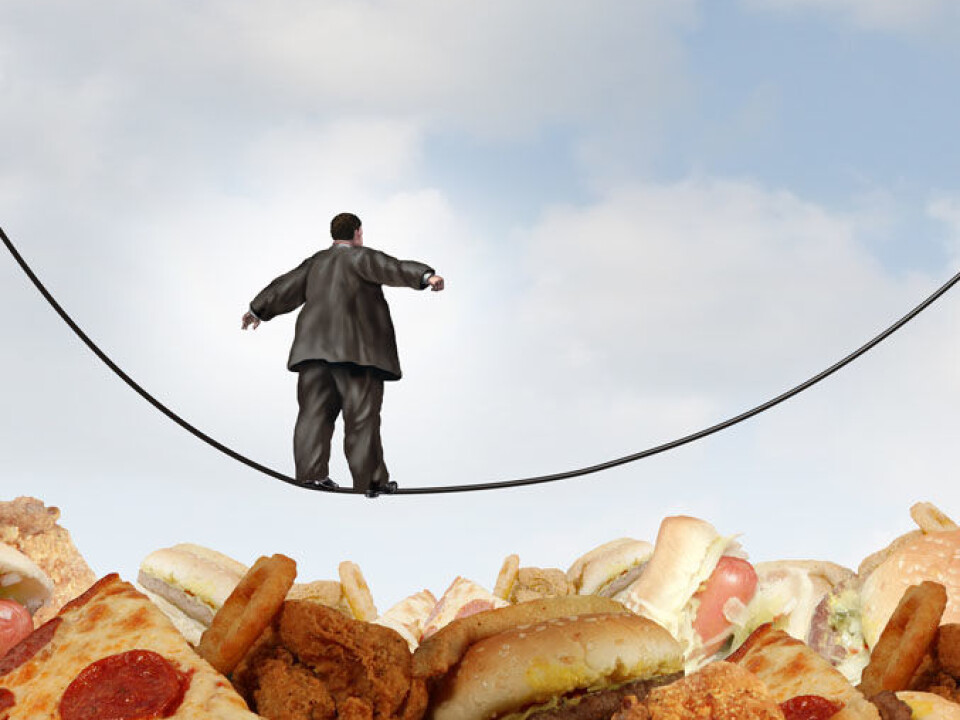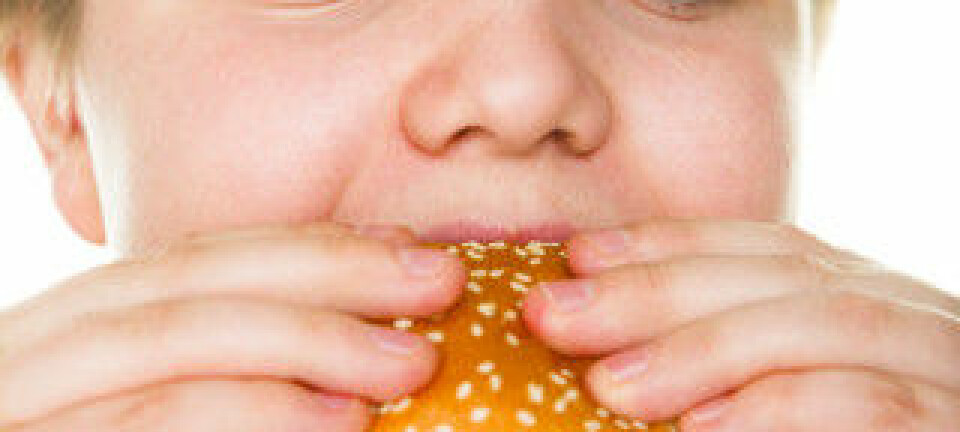
Why it’s so hard to stay slim
Many manage to shed kilos but few are able to keep their weight down at the new level. There are good reasons why.
Denne artikkelen er over ti år gammel og kan inneholde utdatert informasjon.
Indeed, many who are overweight or obese do manage to shed kilo.
A bigger problem is that very few manage to maintain their new weight. Are they totally devoid of self-control?
At a workshop on food and obesity recently organised by Norway’s Vestfold Hospital, Clinical Nutritionist Line Kristin Johnson took that question and rolled it over on its belly:
She explained that it is actually a miracle that anybody manages to stay slim at all.

Most people who wish to keep their weight down after dieting will usually have to stay on the diet – for the rest of their lives. They have to stick to a lean cuisine while hunger pangs and a craving for food are even stronger than usual.
“Our bodies have very strong defences against weight loss.”
“Resisting this driving power to regain lost weight can be the toughest challenge in the time to come,” said Johnson.
Needing less, craving more
Johnson explained that the human corpus has an astonishing ability to maintain a stable weight.

Although many people might vary their consumption a great deal, their weights remain stable within a few kilos.
This mechanism is regulated by sections of the brain, fatty tissue, the digestive system and other body systems.
When people have put on weight over the years and wish to reduce and stabilise their weight at a lower level, such regulatory mechanisms are triggered and try to resist change.
First of all, metabolism is automatically lowered: A body will run on a metabolic pilot light and make do with fewer calories than normal.
Secondly, it does what it can to get access to more food.
“Levels of hunger hormones are ratcheted up so that hunger pangs increase. The body says ‘Eat, this is dangerous behaviour!’”says Johnson.
“At the same time you get a much more pleasure from eating. The desire for high calorie foods mounts too. This is something that can actually be quantified.”
“This knowledge has made me more appreciative. Lasting weight loss is a big challenge,” says the researcher.
This makes it more important to find out what characterises those who actually manage to narrow their waistlines.
Permanent reduction diet
Johnson mentions a study of some 4,000 obese Americans who managed to stabilise and keep their weights down to lower levels.
Some of the patients had received weight reduction surgery while others had lost fat in other ways. It didn’t appear as if the weight loss method itself was the key factor for long-term results.
However, Johnson found that their lifestyles after losing weight pointed toward several common denominators
“They ate low-fat foods. The kept track of their calories and stuck to diets of about 1,300 calories for women and 1,700 calories for men. They ate breakfast but stuck to a rather limited variety of foods, also during weekends.”
“They weighed themselves at least once a week. They limited their time sitting watching TV and engaged in at least an hour of moderate physical activity per day.”
This means these persons have to be harder on themselves than people who haven’t dieted.
An obese patient who manages to lose weight– maybe from 100 kg down to 85 kg – will have to live permanently on a dietary routine which people in a normal weight range would consider a constant diet.
Need for satisfaction
“We who treat patients for obesity need to be more aware of this system which will be trying to return a person to a higher weight,” says Johnson.
Fat people also need to get more information about the ordeal facing them.
“I experience that patients get an eye-opener when they are informed about these mechanisms. I don’t think they find this demotivating. Rather, they become reality-oriented. This corroborates their earlier experiences.”
All the parties need to understand that this objective is going to require knowledge, planning, practice and stamina. And follow-ups too, perhaps forever.
This means the dieter needs to learn to enjoy life with new food habits, without constantly feeling hunger and loss.
One has to learn to tackle challenges such as holidays and birthdays, while getting used to eating calorie-rich foods in only limited quantities.
Individual plans
Johnson and others who lectured at the professional workshop said that the professionals who treat patients for overweight problems and obesity need to listen to what the people say.
Not everything works equally well for everyone. Patients will want plans that are tailored specifically to their needs.
Both patients and their helpers also need to be prepared for relapses.
We live in a society which is grossly exposed to food temptations. It’s not a question of being good at this or not, in which case you might as well toss in the towel. Psychologist Hege Gade, who also lectured on obesity and diet, stressed that it’s possible to get back on track.
But this means the dieter needs to be followed up closely and have the right toolbox for tackling backslides, insists Clinical Nutritionist Line Kristin Johnson.
------------
Read the Norwegian version of this article at forskning.no
Translated by: Glenn Ostling






































